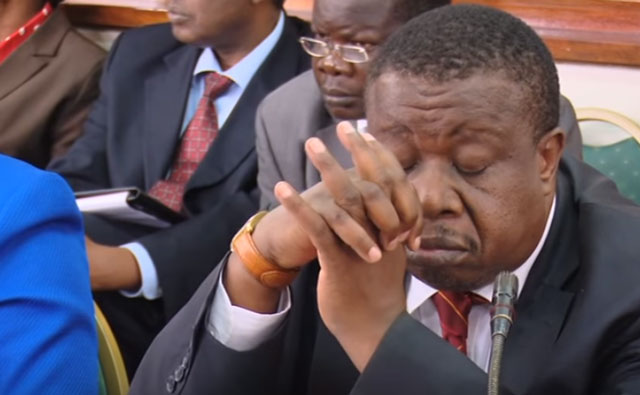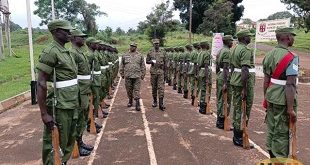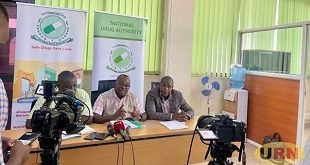
Kampala, Uganda | THE INDEPENDENT | The Justice and Constitutional Affairs Minister, General Kahinda Otafiire was today questioned by the Speaker of Parliament Rebecca Kadaga over utterances he made that he isn’t in a hurry to table electoral reforms.
Kadaga urged Otafiire to differentiate between the Constitutional Review Process and electoral reforms that were ordered by the Supreme Court.
This comes few days after Otafiire was shown on TV telling journalists at his home in Kashenshero in Mitooma District that government shouldn’t be pressurized over the proposed electoral reforms, saying they have sufficient time to table them.
He explained that plan to proposal to the electoral reforms through the Constitutional Review exercise. On Tuesday afternoon, the Lwemiyaga County MP, Theodore Ssekikubo questioned the Minister’s statements, saying his views were demeaning the authority of the House.
Kadaga equally tasked Otafiire to explain himself about the matter.
In his response, Otafiire said he cannot discredit the capacity and authority of the Speaker in any way. He said that nobody should impute that he takes liberty to reply with pride to anyone and that he disrespects parliament.
Arua Municipality MP, Kassiano Wadri said Electoral Commission has already issued a road map for the 2021 general elections and questioned the Minister’s lack of enthusiasm to immediately table the electoral reforms.
Otafiire said that the agencies and his ministry have different roles they play, adding that he is not going to stampede parliament with poorly researched work. Kadaga then directed him to separate the constitutional review process from electoral laws.
In 2016, Supreme Court judges led by Chief Justice Bart Katureebe made 10 recommendations aimed at creating reforms that will guarantee free and fair presidential elections in 2021 and beyond.
They directed the Attorney General (AG), who is the chief government legal adviser to follow up the recommendations and report back to court within two years.
Some of the recommendations included extending the filing and determination period of presidential election petitions to 60 days to enable the concerned parties and court to adequately prepare and present their case, enacting a law to bar the involvement of public servants from meddling in elections and punishment of media houses, which refuse to grant equal airtime to all presidential candidates among others.
The justices were delivering their judgment in a presidential election petition of Amama Mbabazi Versus Kaguta Museveni and 2 others.
*****
URN
 The Independent Uganda: You get the Truth we Pay the Price
The Independent Uganda: You get the Truth we Pay the Price


